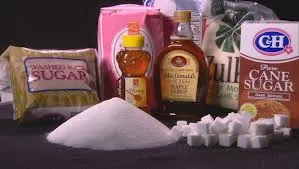
It’s NOT the “Bad” Cholesterol…
It’s the sugar.
I predict that within 5 years, doctors will not be relying on routine lipid panels to assess risk of cardiovascular disease. My prediction reveals my inherent nature as an optimist!
Since dietary fat was mistakenly associated with cardiovascular risk, scientists and physicians alike have measured lipids in all sorts of ways to measure the levels of fat in the blood, which we knew was somehow related to dietary fat. The closest relationship observed was the increase in LDL cholesterol in response to eating saturated fat, not always, but in some people. Since saturated fat was assumed to be dangerous, we made a false connection that the LDL cholesterol must be hazardous, and we have been trying to keep it low ever since. Thus, statins and low fat diets.
Cardiovascular mortality has actually improved over recent years, but this is almost certainly to improvements in acute care of cardiac emergencies. If you live near a well-equipped emergency medical system, you are not likely to die of an acute cardiac event if it is witnessed by anyone with a cell phone.
Meanwhile, we have become sicker with obesity and type 2 diabetes, both significant and legitimate risk factors for cardiac disease!
Sorting out the conundrum has been the work of several very smart scientist physicians, two of whom I am honored to call friends. In a Letter to the Editor in the British Journal of Nutrition, Drs. Wood, Hansen, Sigurosson and Johansson take issue with a point raised by a previously appearing article, whose authors had lauded the benefits of a low carbohydrate diet, regretting only the reality that sometimes a low carb, high fat diet raised people’s LDL (so-called “bad” cholesterol) numbers. Drs. Wood, et al, point out that this is not a legitimate concern. That low carb, high fat diets benefit the really important markers (triglycerides and other markers of sugar metabolism) and that LDL itself can no longer be considered a risk factor for cardiac disease. Too many folks with heart disease have normal LDL’s (but high markers of sugar), and too many folks with high LDL (but normal triglycerides and sugar metabolism) have no evidence of heart disease.
The tide is beginning to turn: what your doc should be checking, if concerned about heart health, includes fasting sugar and insulin, hemoglobin A1C (glycated hemoglobin), triglyceride levels, and perhaps your 2-3 hour glucose tolerance test, checking both glucose and insulin. Secondary tests should focus on cardiac inflammation (hsCRP, homocysteine and others) and existing disease (coronary calcium CT or carotid artery studies.)
And your job is to learn to love your coffee without sugar, your dinner without bread, potatoes and dessert, while allowing yourself the cream, the butter, and the cheese. Flavor enhancers are divided between sweet ones and fat-rich ones. Turn away from the sugar and toward the butter!

